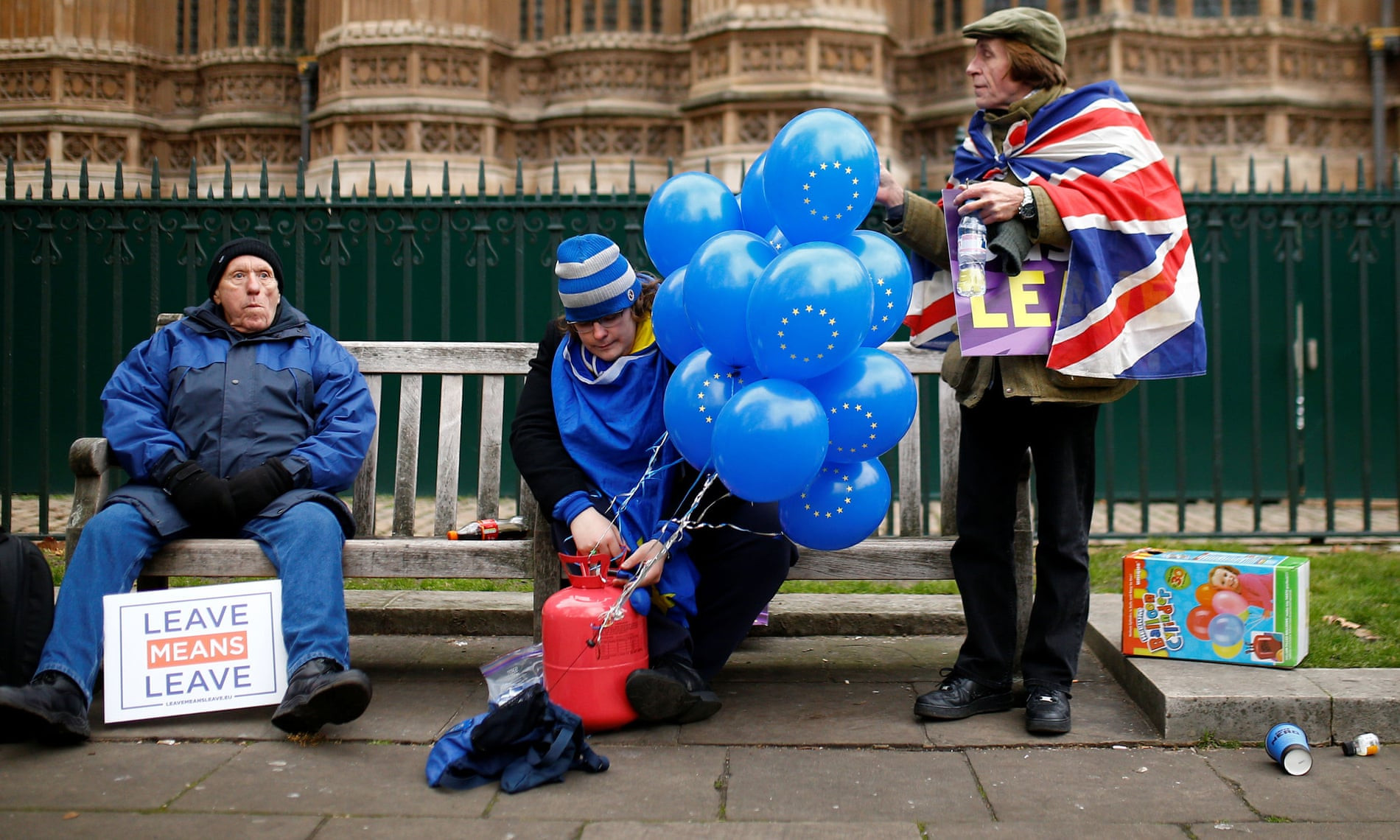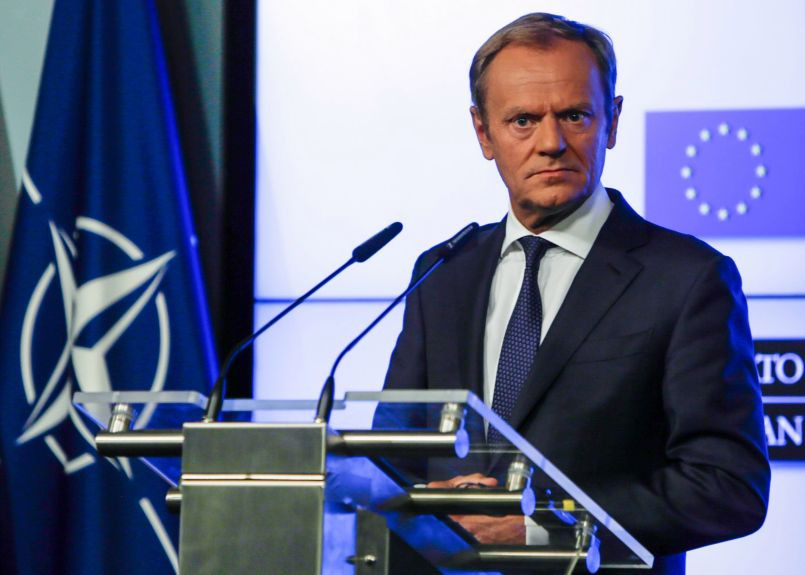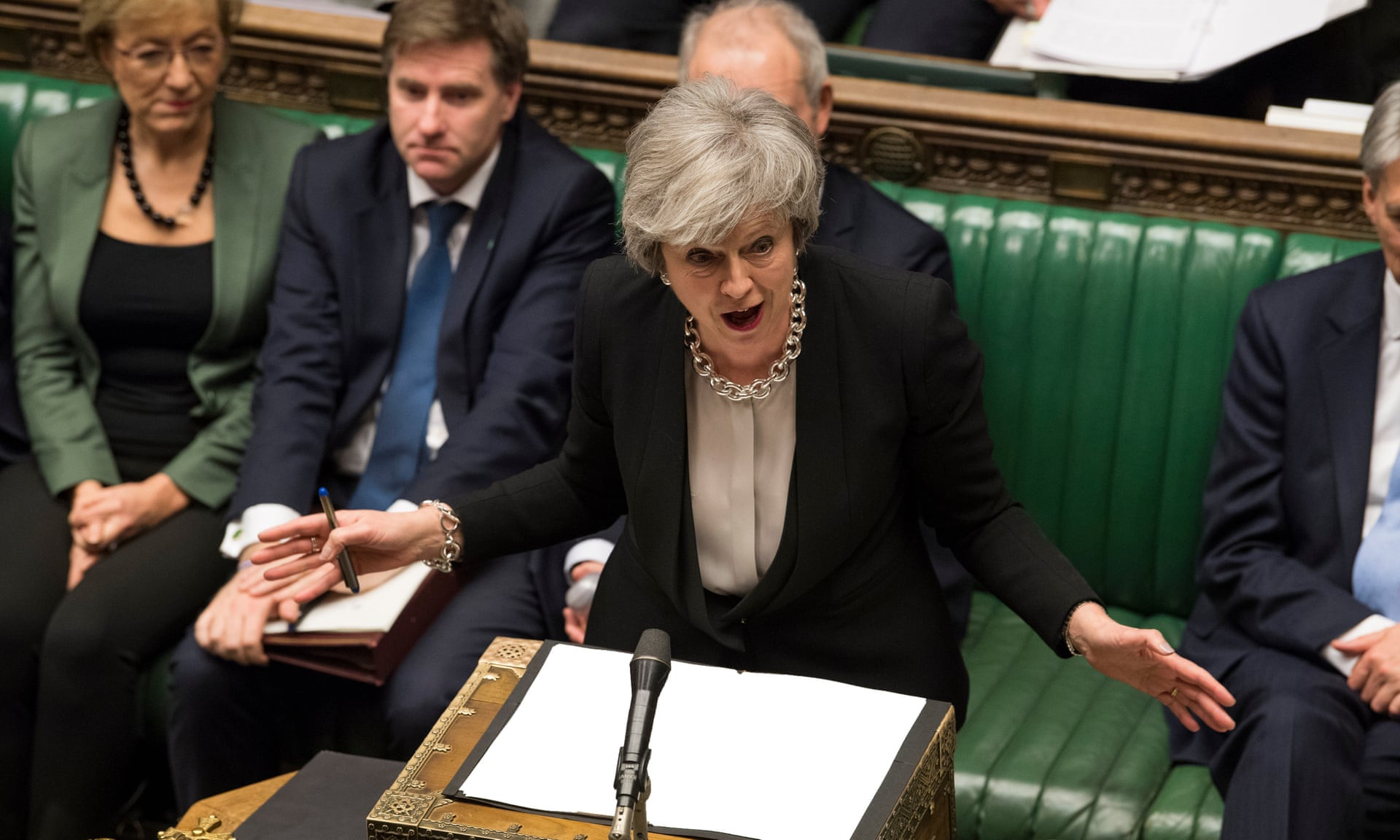Two months before Brexit: Last-minute bargaining
(Baonghean) - The British Parliament has just voted to give its official stance on Brexit. Most notably, it supports Prime Minister Theresa May's Government in renegotiating a number of points with the European Union (EU). However, the EU may not want to meet this request.
When the British Parliament took the decision
For the first time since Brexit negotiations began more than two years ago, the British Parliament has directly intervened in the final agreement. On the evening of January 29, with a narrow margin, the British House of Commons passed an amendment that would allow British Prime Minister Theresa May to renegotiate with the European Union (EU) and would support the Brexit agreement if the clause that requires Britain to keep an open border with Ireland was removed.
Accordingly, with 317 votes in favor and 301 votes against, British MPs passed an amendment, in which they affirmed that they would only support the "divorce" agreement if the "safety net" solution clause was removed.
 |
| The British will have to wait anxiously for a Brexit deal until the last minute. Photo: AFP |
This EU solution is intended to keep Northern Ireland in the EU customs union until an alternative solution is found to keep the border open between Northern Ireland and the Republic of Ireland, in the event that a trade deal is not reached.
This provision also ensures that no tariffs, quotas, rules of origin or customs procedures will be imposed on UK-EU trade during this period.
However, this provision does not clearly state whether the UK can sign free trade agreements with other countries while implementing the above solution. British MPs, especially those who support Brexit, strongly oppose the above solution because they believe that it will make the UK bound to EU regulations indefinitely and be limited in establishing trade deals with other countries in the world. In addition, with a ratio of 318 votes in favor and 310 votes against, MPs also rejected the possibility of the UK leaving the EU without an agreement.
Thus, just as British MPs had expressed when voting against the deal that Prime Minister May reached with the EU, the British Parliament had indeed “taken action” based on its own views. Immediately after the vote, Prime Minister May’s spokesman emphasized that the British Parliament had sent a clear message to Brussels about what changes the British people wanted to make to get the deal passed.
Is it easy to get through the EU "door"?
On the evening of January 29, when the results from the British House of Commons were announced, the EU had its first reaction. From Brussels, the spokesman for European Council (EC) President Donald Tusk declared that the “divorce” agreement between the European Union (EU) and the UK, also known as Brexit, is not negotiable.
That means the EU says no to the UK Parliament's view that the border deal with the Republic of Ireland should be replaced with as-yet unspecified “alternative arrangements”.
The statement also said the EU continues to call on the UK Government to clarify its intentions regarding the next steps as soon as possible, and reaffirms that the Brexit deal remains the best and only way to ensure the UK's orderly exit from the EU.
European Council President Donald Tusk, representing European leaders, consulted European leaders about British Prime Minister Theresa May's request for the EU to withdraw the "backstop" clause of the deal.
A spokesman for the European Commission president insisted the "backstop" solution, which would help ensure an open border between Northern Ireland and the Republic of Ireland, binding London to the bloc's customs rules until the two sides agreed on future trading relations, was part of the Brexit deal and insisted it would not be reopened.
 |
| European Council President Donald Tusk. Photo: AFP/Getty |
A spokesman for the EC President also added that if the UK makes a “reasonable request” for an extension beyond March 29, and if member states agree, this could be arranged. Similarly, French President Emmanuel Macron also stressed that the Brexit deal is “the best possible deal and cannot be renegotiated”.
The responsibility is back in the hands of Prime Minister May
Basically, the UK has agreed internally on the terms of Brexit that need to be revised. This can also be considered the UK's will in the final negotiations with the EU. The situation has turned around. Now Prime Minister Theresa May-The man who had to endure criticism from British public opinion and thought he could not stay in office will again take on the responsibility of a "lobbyist".
The upside is that Mrs May now has British public opinion on the future of Brexit. Any deal the Government reaches with the EU will be final and the British Parliament will have to accept it. The downside is that Mrs May now has to prove to the EU that a new deal, as demanded by the EU, is better than what the EU still considers the “best possible” text.
From the EU side, although always determined not to renegotiate, the "soft and flexible" messages are being left open by EU officials after witnessing the Brexit deal being heavily defeated in the British House of Commons two weeks ago. French President Emmanuel Macron said there would be a possibility to improve one or two things in the agreement.
 |
| The Brexit deal that Prime Minister Theresa May painstakingly negotiated with the EU could return with some changes at the request of Parliament. Photo: UK Parliament |
Meanwhile, German Chancellor Angela Merkel also revealed that "there is still time to negotiate, but the EU wants to know the proposals from the British Prime Minister."
Irish Prime Minister Leo Varadkar also noted that the EU is ready to cross red lines on the issue of customs union and single market if Britain does the same.
Public opinion believes that finding a "pleasing to all" agreement is really difficult in the current context, when the "poison" Brexit is disintegrating all traditional political bonds.
But with the possibility of a hard Brexit scenario that could cause damage to both sides, it is hoped that both the UK and the EU will find a common voice and harmonize mutual interests before the deadline./.

